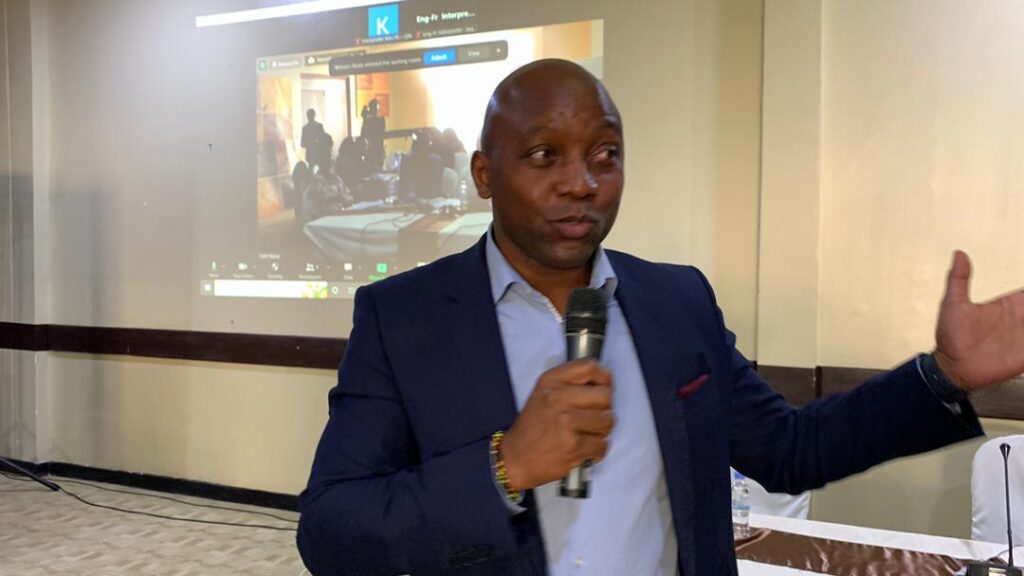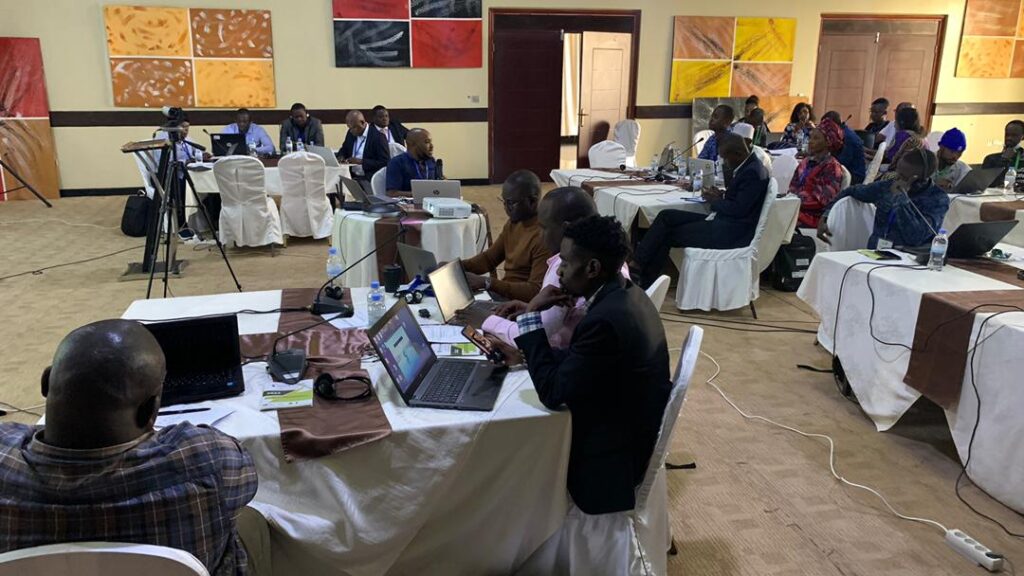
By Jiata Ekele
Kigali, Rwanda: African journalists and news experts are undergoing training on how best to report on the climate and cover negotiations at the Conference of Parties (COP) to the United Nations Framework Convention on Climate Change (UNFCCC).
The training workshop taking place in La Palisse Hotel, Kigali Rwanda June 22-23, 2022 is being organized by the Pan African Climate Justice Alliance (PACJA).
According to a 2018 Research Programme on Climate Change, Food and Security, dubbed: “Linking knowledge with action, the role of media in climate change adaptation and mitigation,” the need for journalists to understand the climate crisis and highlight how they can help link knowledge to action cannot be over-emphasised.
Given the important role of journalists in raising public awareness on environment and climate change issues, PACJA has organised the training workshop in the context of ACCER Awards 2022 for journalists and bloggers themed ‘African narratives at the centre of analysing and premising major social, economic and political issues towards COP27’.
“The training will expose journalists to opportunities to gain a wider understanding of key issues shaping the COP27 debates, key players and processes ahead of COP27 and their role in shaping these debates,” said Charles Mwangi, Acting Executive Director PACJA.
“A road map of COP27 key buildup events will highlight to the journalists, key spaces where they can plug in for both information and influence purposes, besides key moments in COP27,” he added.
PACJA in a document highlighted that in November, the world’s marquee climate conference will come to one of its fastest-warming regions. Over roughly two weeks, global leaders, businesspeople, and, in theory, civil society organizations, will negotiate and schmooze along the shores of the Red Sea at Sharm el-Sheikh, Egypt.
After a rather mixed outcome of last year’s COP 26 in Glasgow – and even more chilling IPCC report releases since then, global environmentalists are counting on this year’s COP 27 to produce the kind of game-changing, emissions-cutting measures that climate risks so desperately demand.
Philip Kilonzo, Communication Lead PACJA said this year’s training theme aimed to drive and shape the African narratives that ultimately influence the discussions to take place during the 27th conference of parties to the United Nations Framework Convention on climate change as well as the outcome texts from the COP27 Presidency.

In his remark, Maxwell Gomera UNDP Representative Rwanda decried that Africans do not tell their stories very well and that is why green investors shy away from lending money owing to so many stories of corruption and incompetency.
“How can Africa transition to clean energy yet we are being denied basic technologies by the developed countries. We need to develop human capital in order to transition. We need to develop a lot in education, science and research,” he added.
Eugene Nforngwa, Energy Thematic Lead PACJA laid emphasis on climate justice. He said “A climate justice narrative led by the African media players is needed as the continent prepares to host the 27th Session of the Conference of Parties (COP27) to the UN Framework Convention on Climate Change Summit slated for November 7 to 18 in Egypt.”
“As such it will be fundamentally useful to have deeper conversations on what are the African narratives of importance and how best to anchor these narratives in a consistent and coherent manner across all spaces, including in media publications, enhancing political orientation of the continent and in the actual negotiations in COP,” he concluded.
Several capacity-building presentations were made by different resource persons, Robert Muthami (Senior Programme Advisor, FES – Friedrich-Ebert-Stiftung), Isaiah Esipisu (PAMACC), Prof Kioko Ireri, Duncan Mboya (Xinhua News Agency), Kofi Adu Domfeh, and Zainabu Wandati all highlighted the multiple facets of what the African demands were and how they were to be treated at the COPs.
Some of the demands include the recognition of Africa as a region with special needs and circumstances. This has been a demand from the continent and is backed by IPCC reports, unfortunately, this demand did not even make it to the COP agenda
Another was the fast-tracking of global goals on adaptation to the case in mitigation and finance. Charles Mwangi highlighted that the need for the development of a global goal on adaptation was agreed on in 2015 but the actualization of the same has been dragging since then.

“We hope that this “Glasgow-Sharm el-Sheikh Work Programme” established at COP 26 will deliver the promise,” he said.
Furthermore, it was established that Africa requires more adaptation than mitigation support, ironically adaptation accounts for 25% of the total climate finance. Africa has been calling for a balance between mitigation and adaptation – the call to developed countries at COP 26 to double adaptation funds by 2025 remains just a call and there is still not much commitment towards this issue.











